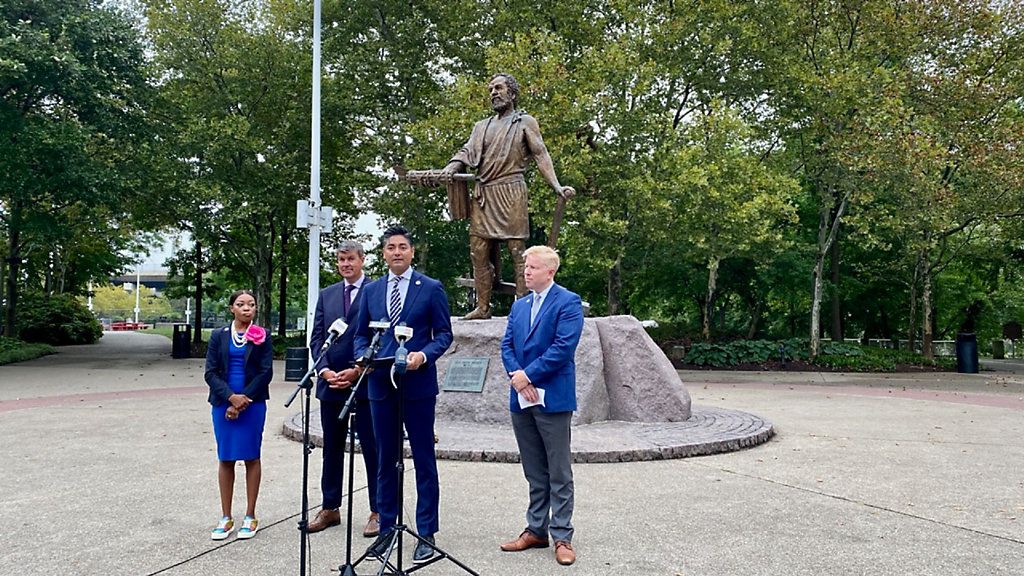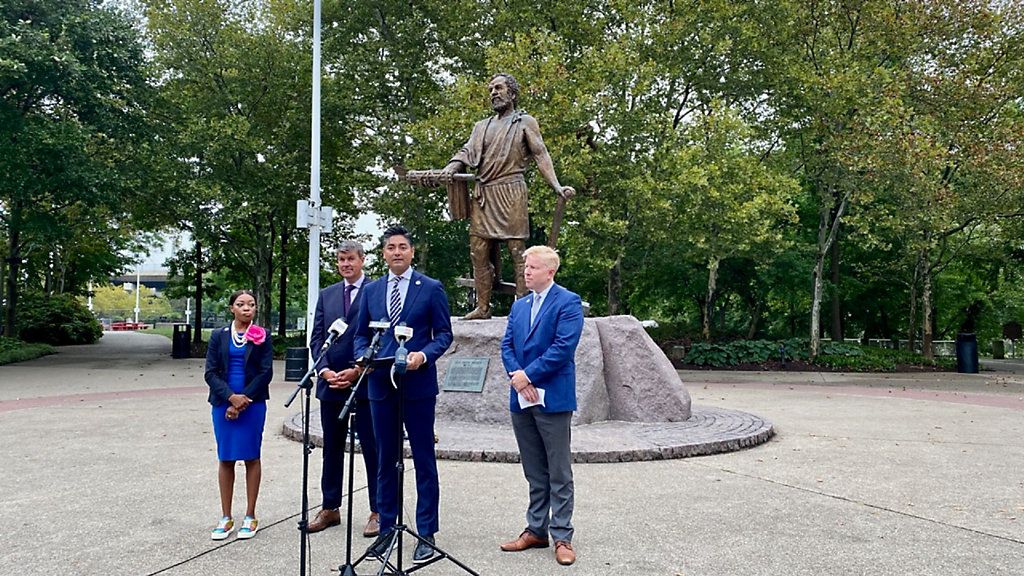CINCINNATI — In November, Cincinnati voters will likely have the chance to change the city’s charter and eliminate what’s become known as the “pocket veto,” a loophole that provided the mayor with the power to postpone proposed legislation indefinitely.
What You Need To Know
- Council approved ballot language that would require the mayor to refer legislation to a council committee within four regularly scheduled meetings
- Council elected not to vote on an opposing piece of legislation that required a referral within two meetings
- The legislation, proposed Tuesday, needed to pass by Thursday to make it to the November ballot
- Representatives of the local Charter Committee wish the council had more time to debate the legislation, but are happy to see something on the ballot
City Council voted unanimously Thursday to approve the amendment proposed earlier this week by Mayor Aftab Pureval and Council members Mark Jeffreys and Jeff Cramerding. As proposed, the legislation provides timelines for the referral of legislation to City Council for a vote.
The pocket veto is an unintended byproduct of the so-called “stronger mayor” charter amendment of 20 years ago, according to Bill Frost, president of the Charter Committee of Greater Cincinnati.

Mayor Aftab Pureval (speaking) stands with three members of Cincinnati City Council on Tuesday, Sept.6, to announce plans for a charter amendment to get rid of the so-called “pocket veto.” (Spectrum News 1/Casey Weldon)
The Charter Review Task Force first recommended eliminating the pocket veto in 2015. That version recommended requiring the mayor to assign all legislation to a committee within 14 days.
Pureval said Thursday the goal of the four-week period is to allow for discussions between the mayor, council members and residents or other stakeholders to allow time to work out any perceived issues with the legislation prior to it making it to a vote. Cramerding made a similar comment after the announcement of the legislation Tuesday morning.
Prior to Thursday’s vote, Council member Liz Keating proposed an alternate version of the amendment that would’ve required a referral to council within two meetings.
Pureval put Keating’s version up to a roll-call vote to suspend it indefinitely. Eight of the nine City Council members voted in favor of the suspension, with Keating being the only one who voted no. As a result, Council never voted on that version of the legislation.
Council could have sent both measures to the ballot. If voters approved both, the one with the most votes would’ve gone into effect.
Thursday was the last day for City Council could approve if it wanted it to be on the November ballot.
Frost wishes City Council would have had more than three days to consider the proposal before voting. He believes Keating’s proposal would’ve been positive for the city as it would have eliminated the threat of a “pseudo pocket veto,” a term he used to describe a mayor allowing legislation to linger for up to the allowable 16 total weeks until a council term expired.
But he said getting something on the ballot is important because the “pocket veto has been absolutely abused in the past.”
“The most important thing is we have an opportunity in November to make sure that if we get a mayor in the future, who is insistent on doing what they want, rather than what an elected City Council have discussed and democratically arrived at, that they don’t have the power to just stop legislation that doesn’t fit their needs,” Frost said.
The ballot language now goes to the Hamilton County Board of Elections for approval. The board will vote to certify the item during its regular meeting on Tuesday, Sept. 13.
How the new legislative process would work
Under the new plan, once legislation got filed, the mayor would have to refer it to the appropriate committee within four regularly scheduled meetings. A committee usually has only a handful of City Council members on it. Once the mayor referred to the legislation, that committee chair — appointed by the mayor — would then have up put to four regularly scheduled meetings to put it on the agenda.
If the committee approved the legislation, the mayor would have to put it on the agenda for a full council meeting within four regularly scheduled meetings.
Based on the amendment language, if those actions don’t happen, then the Clerk of Council would do it.




